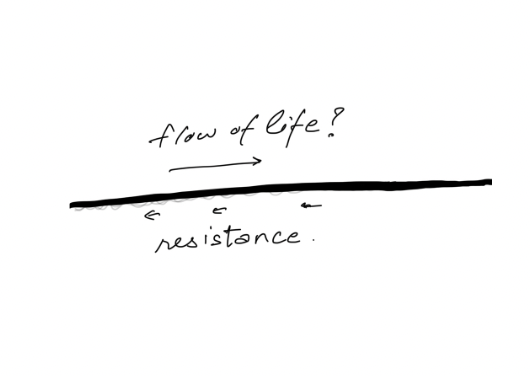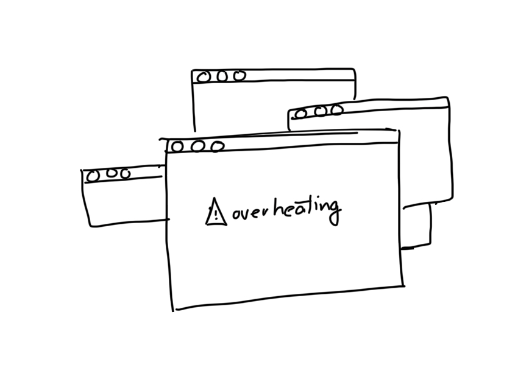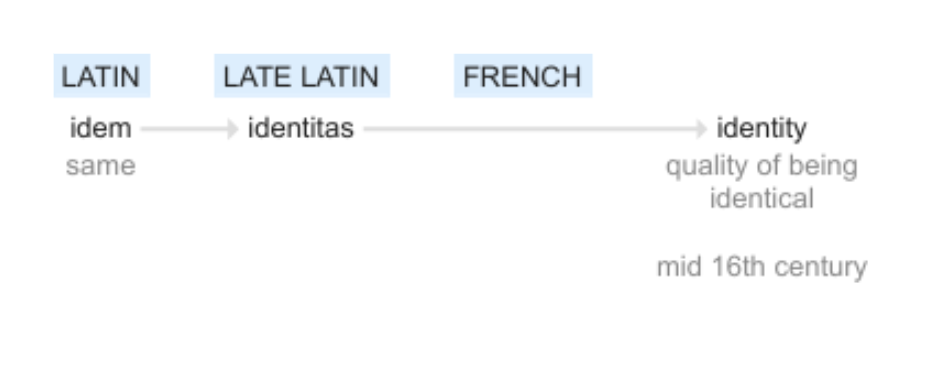Freeing Attention!
28th September, 02024
What are we really trying to achieve in the name of development, progress, or even evolution?
It can be seen as a movement toward something better. Of course, "better" is subjective—it changes depending on the individual or community. But generally, "better" means finding new or improved ways of doing things, reducing the resistance we face.
Looking back at history, we see a pattern of this improvement: from wilderness to agriculture, electricity, and democracy—all aimed at reducing the friction in how we live.
But there's a question we take for granted: Why are we always trying to improve? Why do we keep striving for fewer problems and less resistance? What are we moving towards, and what keeps driving us forward despite the obstacles?
We ask this now because, with recent technological advancements like the internet, we can find shortcuts or completely new ways to reach our goals.

What do we truly seek?
It's hard to generalize what one seeks as it is subjective. However, we all experience those rare moments of no resistance in whatever we do—when we're so deeply involved in it that we become "lost". Developers feel it while coding, dancers while dancing, artists while painting etc. In these moments, we feel nothing but total freedom in what we do. In many ways, the rest of development is about reducing the friction on the path to this state, letting us do what we love and have nothing to worry about.
A little more.
Monks, yogis, and saints refer to this as meditation. It’s the ability to attend to something with complete focus, free from any friction or distraction. In fact, in Sanskrit, the word for both attention and meditation is Dhyāna—a state of pure focus, where resistance disappears. This state, where we feel no resistance and experience total freedom in what we do. We can meditate on problems we face as a collective and free all of us together rather than just working alone.
However, money, which was originally meant to aid in this process, has become a cause of resistance for most of us. The limited avenues for earning money often obstruct our way of finding our true interests, leaving us with a vast identity void.
As a result, we begin to chase whatever society and advertisements tell us is "worthy" and will enhance our image. Having lost control over our self-image, we try to cultivate a great image in society’s eyes, hoarding more and more.
In this pursuit.
We accumulate wealth and buy unnecessary things, depleting the planet of resources that could have helped reduce friction for all of humanity. So many brilliant minds that could have driven breakthrough innovations are instead stuck making ends meet, performing tedious, repetitive tasks, not meant for human brains.
This isn’t anyone’s fault. It is, in fact, progress—one could argue, progress over slavery.
Is there a way of eliminating more resistances, freeing our attention from things we don’t want to attend, and paving the way for a life of fulfillment?
Need for more self-sufficiency!
Leaders and institutions throughout history, though created to serve, turn into resistances when they lose focus, prioritizing their own identity, rules and procedures over the greater good of humanity.
Many of us have been failed by the very systems meant to improve our lives. And while it may not always be clear, we are the ones who truly understand what has let us down. We’ve lived through the obstacles, faced the resistance firsthand. We know their nature better than anyone, and it is up to us to be the ones to fix things.
Here is the way we can do that:
- Finding out what has been the biggest problem/ distraction, boil it down as much as we can.
- Find people who we can work with to solve the problems.
Finding work that truly motivates one can be difficult when devoted our lives mostly squishing our dreams in the name of “reality”.
A weird method that works!
We can find our purpose or meaning using the “mind tabs method”:

Identify the "tabs" that have stayed open in your mind throughout your life—the ones you’ve chosen or been forced to open. These are the thoughts, problems, passions, or resistances/burdens that occupy your mind. Now, arrange them by how much space they take up in your head, from the heaviest to the lightest. You can stop when it feels right.
If you've already found a process (skill) you love and through which you express yourself fully, congratulations! Now, find someone who's struggling and be their hero, help them solve their problem.
For those with love for a skill.
If you've already found a process (skill) you love and through which you express yourself fully, congratulations! Now, find someone who's struggling and be their hero, help them solve their problem.
Important point– see beyond humans, humans are not bad, something made them the way they seem, find that problem!
In the 14th century, aspiring to be a scientist was almost like signing your own death warrant in many places. Yet today, it’s one of the most respected professions. So don’t judge what you want to pursue—we're far from the limitations of the past. More importantly, don’t be a barrier to someone else’s path. This is about serving the greater good, not personal gain.
Moving Beyond Identity
Many things we strongly identify with are just parts of our experience. If we try to step back and see them from a third-person perspective, it helps.
This isn’t about building a brand, company, or startup—it’s about solving problems. Let’s avoid creating profit-driven, dehumanizing entities bogged down by endless legal work. We are toolmakers. We use tools, but we should not become tools for corporations.
PERSPECTIVE > Identity
What we think we are is simply the sum of the things we’ve paid ‘attention’ to in life. When we get too attached to our views of the world, we clash with others. But often, it’s just a difference in perspective. The world seems hopeless when we stop making room for other people's realities.
Important but skippable
If you see someone with a troubling perspective, don’t hate or criticize them—help them. Your lack of motivation to understand and solve the issue is what truly stops progress. Labeling someone as "bad" only makes them cling more tightly to their beliefs. Remember! it's their survival instinct.
Approach problems from a safe distance. Some ideologies are radically different from yours—sometimes even dangerous. This is no joke! People aren’t inherently bad; we’re just shaped by our circumstances. If you’d grown up in their conditions, you might think the same way. That’s why it’s called "conditioning."
Getting to the antidote we are working on:
The two of us started working on the problem of Identity. One being a developer saw this as a problem of privacy, security and something that needs to be universal. While the other being specifically “nothing” and “nothing” specifically spent their time thinking what does identity even mean, why do we need it etc.
Identity or ”I them tity” (as we call it)

Your identity is what you align with—the group of people, beliefs, or roles you associate with.
Traditional identity offers very little self-agency and is extremely centralized. Not centralized in terms of being issued by an institution, but in the sense that everything it contains is beyond our control.
- Where you were born
- Your birth name
- Your parents
- Even your profession: often an illusion of choice
- Your religion
Is that really all we are?
We’re handed this static piece of filth at birth, and much of life revolves around it. We end up fighting for or justifying these "attributes" as if we had any choice in picking them!
Okay! need to take it light, you see that is why we had to create an antidote.
Identity should not limit us; it should set us free. If it doesn't, how is it progressing?
Many of us were born into middle-class families in developing countries, told we had little chance of success. At least one of us heard that, especially if they couldn't code.
Why? No real answer—just resistance.
So, here’s the solution:
The Internet is our liberator!
Knowledge is the most powerful asset we share. It helps break down resistances and shapes our true interests.
Problem 1: Lack of legitimation of online knowledge.
We need to prove this legitimacy to get jobs, right? But why should we care about that when we’re out solving real problems?
Question: How do we understand people then?
- Contribution over certification
- The story of my life over educational achievements
- What I can do despite restrictions vs. a college degree (except if you're my doctor—until we perfect robots and AI!)
- General reasoning and logic vs. exams (fear blocks reason)
Problem 2: Trust
Even Government-issued identities are often unreliable in many countries.
Question: What type of trust do we need, and why?
We need trust to keep bad actors from pretending to be someone they’re not.
The solution? A human network! A person’s credibility will be validated by multiple living, active humans.
The Final Problem: What’s the Point of Identity?
The answer: To identify the people we want to work with, and to find the path of least resistance—whether it involves people, places, or projects.
Ultimately, we don’t need to cling to an "identity" or "identify with" anything. We can just be perspectives, working on solving different problems.
Perspectives can’t be right or wrong, just different, shaped by the conditions they encountered. We can expand a perspective or remove its blind spots, allowing us to avoid ego-driven conflicts and unnecessary competition.